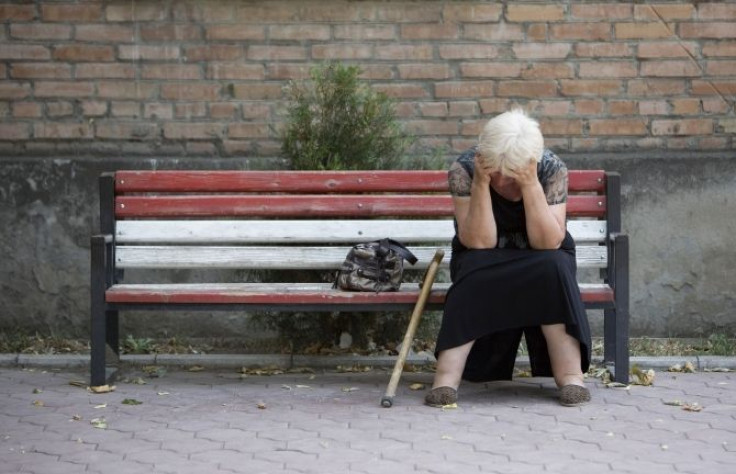Feeling of Loneliness Might Predict Illness in Seniors

That creepy feeling of loneliness might predict the chances of a person, especially a senior person, of getting a serious health complication, a new study says.
For the study, researchers analyzed data from Health and Retirement Study which is compiled by the National Institute on Aging. This study was conducted on 1,604 older adults between 2002 and 2008. The study included some 1,500 participants who were about 71 years old.
The researchers found that old people felt lonely even when they were not living alone. Only 18 percent of the adults lived alone, yet 43 percent, almost half of the study participants, said that they were lonely.
Older people may feel lonely and not necessarily feel depressed, the researchers say. Loneliness is more of a diminished self-worth and feeling of emptiness. Some people attribute childlessness to loss of well-being. Some studies have shown that old people who do not have any children may not be that sad. However, marital status is seen as an important factor in old people feeling lonely.
"In our typical medical model, we don't think of subjective feelings as affecting health. It's intriguing to find that loneliness is independently associated with an increased rate of death and functional decline," said lead author Carla Perissinotto, an assistant professor in the UCSF Division of Geriatrics.
According to estimates, some 26 billion is spent annually in the U.S. on people who lose functional ability. Researchers say that helping people feel less lonely may reduce the risk of many diseases.
"We are interested in identifying the different factors that cause adults to become functionally impaired and ultimately at risk for nursing home admission. The aging of our population and the greater odds of institutionalization make it important for us to think about all the factors that are putting elders in danger, including social and environmental risks," Perissinotto said.
"This is one of those outcomes you don't want to see because it was terrible to find out it was actually true. We went into the analysis thinking that there was a risk we could find nothing, but there actually was a strong correlation," Perissinotto said.
"Asking about chronic diseases is not enough. There's much more going on in people's homes and their communities that is affecting their health. If we don't ask about it, we are missing a very important and independent risk factor," she added. "We don't think we can change genetics, but we can intervene when someone is lonely and help prevent some functional decline."
The study is published in the journal Archives of Internal Medicine.



























